Proactively prevent epidemics
Late in the afternoon, Mr. Bui Thanh Tu, a resident of Tien Phong village, Au Lau ward, Lao Cai province, leisurely led his herd of buffalo back to the barn. The sound of buffalo gongs clacking in the quiet space, mixed with the faint smell of dry straw, the familiar sounds and flavors of the Northwestern mountainous countryside. Looking at the herd of fat, healthy buffalo, Mr. Tu smiled: "Since I proactively vaccinated, I feel much more secure. With good health, buffalo herds are truly valuable assets for farmers."
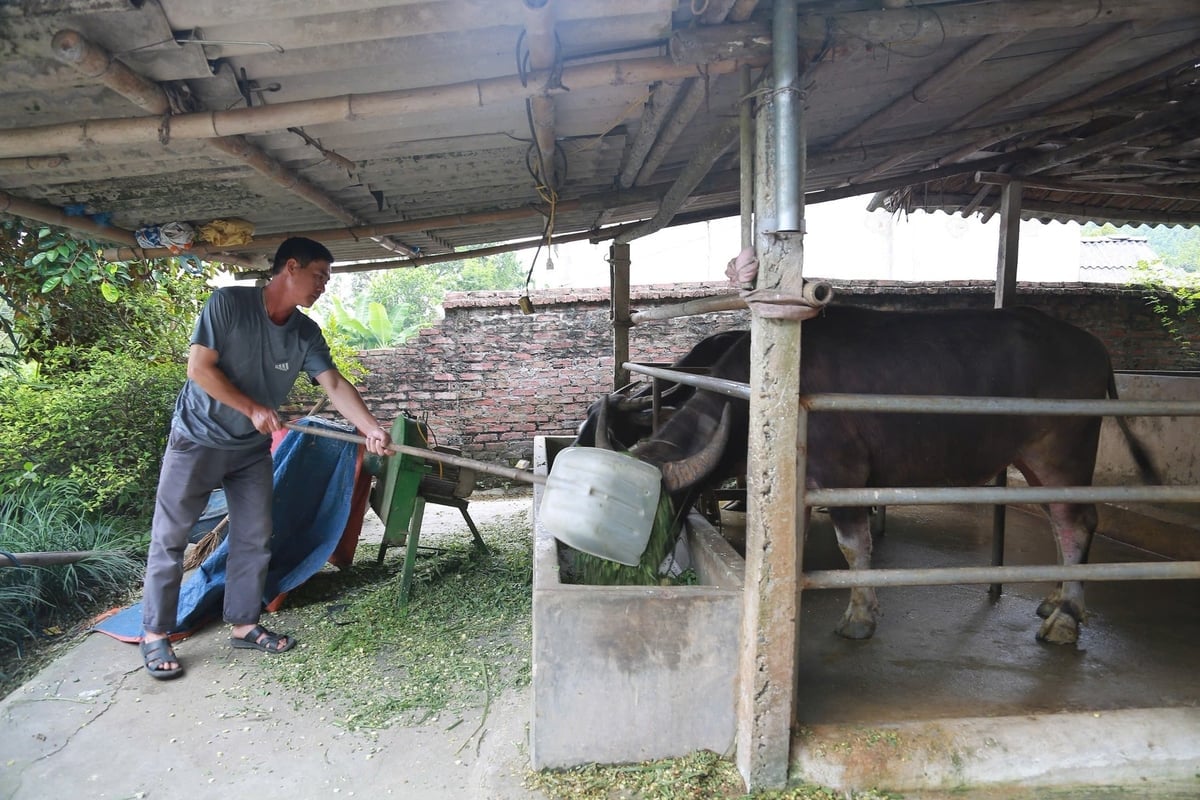
During the dry season, Mr. Bui Thanh Tu always proactively provides food for his buffaloes to increase their resistance. Photo: Thanh Nga.
In previous years, whenever he heard about foot-and-mouth disease in a neighboring commune or village, Mr. Tu felt heavy-hearted. If a buffalo got sick, it was considered a total loss, unable to plow or sell. However, in recent years, Mr. Tu has taken the initiative to vaccinate twice a year, sprinkle lime to disinfect the barns and clean them regularly. Thanks to that, the barns are always neat and dry, and the buffaloes are healthy.
“Veterinarians regularly come to check and guide me on how to recognize early signs of disease. Now I have the care techniques and am always proactive in preventing disease early,” Mr. Bui Thanh Tu shared.
Currently, the herd of nearly 10 buffaloes is the main source of income for the family. According to Mr. Tu, maintaining a stable herd of livestock is the result of proactive disease prevention combined with a reasonable diet. During the dry season, it is necessary to stock up on dry straw, fresh grass and supplement minerals to help increase the buffalo's resistance.
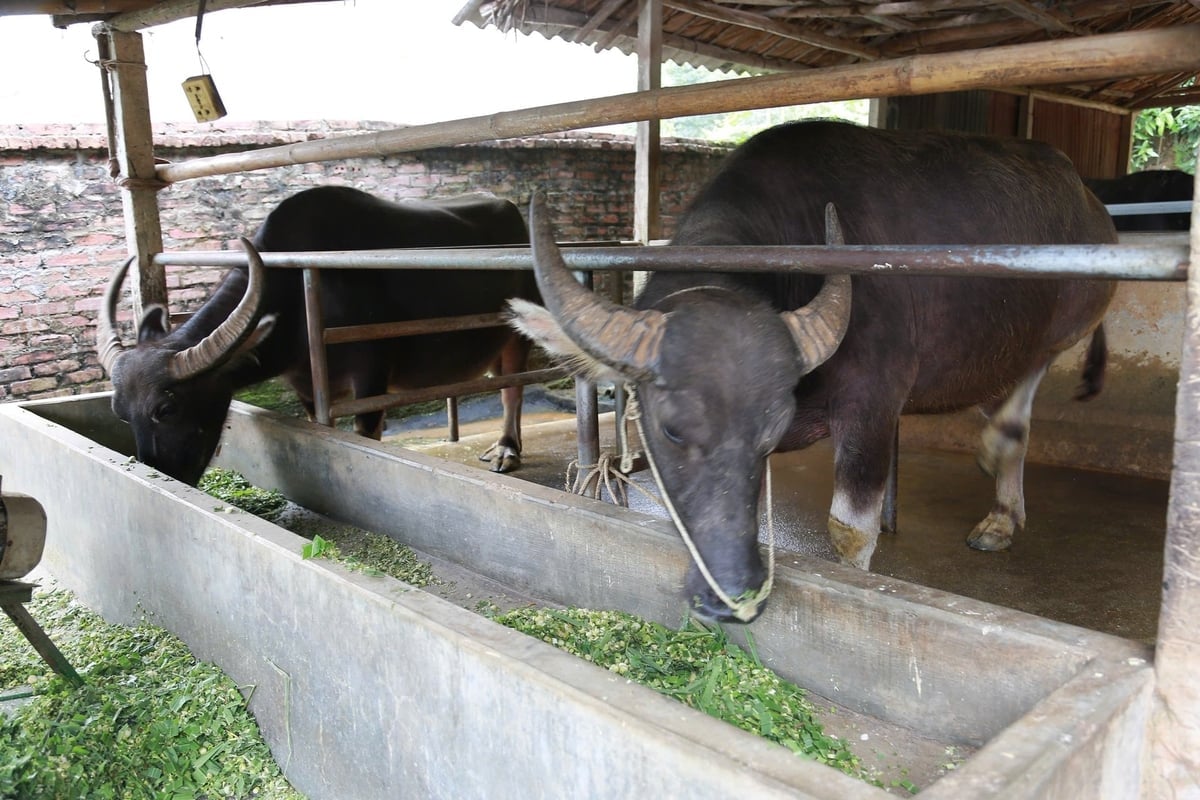
Livestock barns are also cleaned regularly. Photo: Thanh Nga.
Mr. Tu said that the end of the year is a sensitive period due to changing weather, buffalo health is easily impaired. Therefore, vaccination, barn cleaning and monitoring of livestock health must be carried out seriously, not subjectively. If an epidemic breaks out, not only your family will suffer losses but the whole village and ward will also be affected. Therefore, every livestock farming household needs to be proactive.
Support from the agricultural sector
According to Mr. Nguyen Quoc Huy, Vice Chairman of the People's Committee of Au Lau Ward, Lao Cai Province, implementing the foot-and-mouth disease vaccination plan deployed by the Department of Agriculture and Environment of Lao Cai Province, the People's Committee of the ward has developed a specific plan for each village and residential group.
The Ward assigned the Urban Economic - Infrastructure Department to coordinate with the Regional Agricultural Support Service Station to review and fully count the number of livestock in the area. From those results, the units made a detailed vaccination list, ensuring the right subjects, the right time and the required rate.
Since then, vaccination has been carried out in specific phases, closely monitored by veterinary staff and residential groups to avoid missing or duplicate vaccinations. Thanks to synchronous implementation, the vaccination rate of all types of vaccines every year always meets and exceeds the set plan, contributing to effectively preventing the risk of disease spreading, protecting the safety of livestock as well as people's livelihoods.
Mr. Nguyen Quoc Huy said that propaganda work to each livestock household is always maintained regularly, helping people raise awareness of the importance of vaccination and keeping barns clean. Thanks to that, awareness of proactive disease prevention in the community is increasingly raised.
“Up to now, there have been no recorded cases of foot-and-mouth disease in the ward. This is the result of proactive and close coordination between local authorities, professional agencies and livestock farmers,” Mr. Huy emphasized.
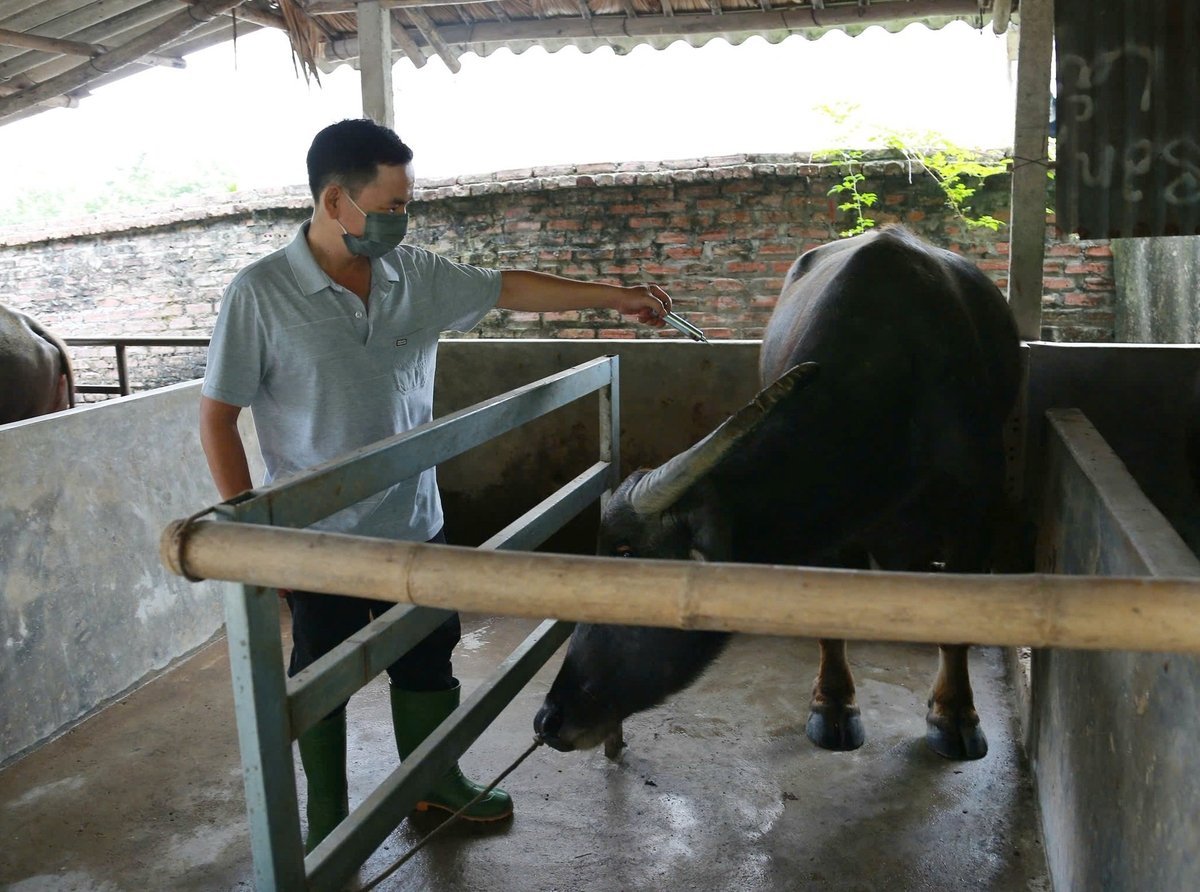
Vaccinations are carried out in specific phases, closely monitored by veterinary staff and residential groups to avoid missing or duplicate vaccinations. Photo: Thanh Nga.
In addition, Au Lau ward also implemented a plan to spray disinfectants periodically, especially after each flood or season change. The livestock environment is guaranteed to be clean and dry, helping to limit pathogens. Epidemiological surveillance work is assigned to veterinary officers in charge of each area to promptly detect and handle any unusual signs.
Every year, the ward strives to vaccinate 100% of the livestock subject to mandatory vaccination. The government also encourages people to proactively contact veterinary staff when they need additional vaccinations or technical support.
According to Ms. Bui Thanh Mai, an official of the Agricultural Support Service Center, the officer in charge of livestock work in Au Lau ward, in recent times the agricultural sector has implemented many synchronous solutions to control diseases in livestock, especially foot-and-mouth disease.
Immediately after receiving instructions from the Agricultural Extension and Agricultural Services Center (Department of Agriculture and Environment of Lao Cai province), the station organized specific instructions on disease prevention procedures for communes and wards. Particularly in Au Lau ward, the second phase of foot-and-mouth disease vaccination campaign in 2025 was deployed simultaneously with more than 200 buffaloes and cows counted and 130 were vaccinated in this phase.
Along with vaccination, propaganda activities and recommendations for people on hygiene, disinfection of barns, and ensuring nutrition for livestock are also enhanced.
According to Ms. Bui Thanh Mai, in addition to foot-and-mouth disease vaccines, the State also supports disinfectant sprays to prevent avian influenza 2 to 3 times a year, depending on the actual situation. Although the State has support policies, people still need to be proactive in disease prevention and control. Close coordination between the government, the veterinary industry and livestock farmers is the key factor to maintain a disease-free zone.
Thanks to synchronous measures and the participation of the entire political system, Au Lau ward has maintained stable livestock herds, ensured disease safety, and contributed to sustainable livestock development. Many households have more stable income and continue to expand their scale.
In fact, when awareness of disease prevention is raised and veterinary work is scientifically organized, people can not only protect their property but also join hands with the locality to maintain safe livestock areas. This is an important premise for developing the livestock industry in a modern, effective and sustainable direction in the future.
Source: https://nongnghiepmoitruong.vn/au-lau-bot-au-lo-nho-chu-dong-phong-dich-dan-gia-suc-d782449.html



![[Photo] Closing of the 14th Conference of the 13th Party Central Committee](https://vphoto.vietnam.vn/thumb/1200x675/vietnam/resource/IMAGE/2025/11/06/1762404919012_a1-bnd-5975-5183-jpg.webp)
















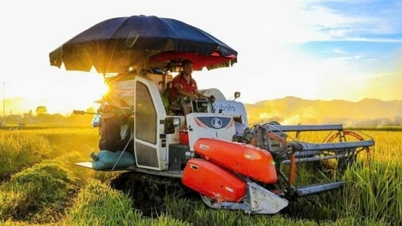



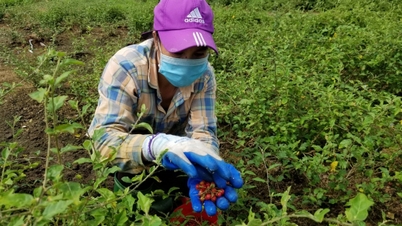










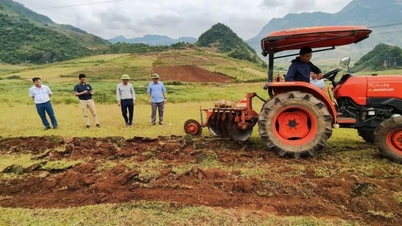


















































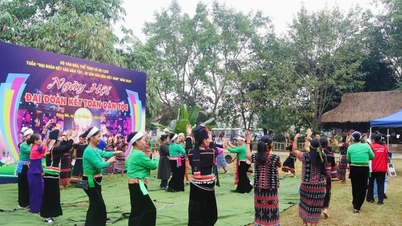


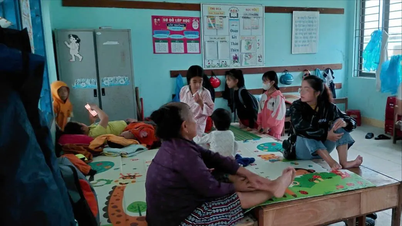
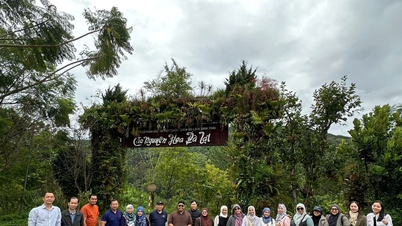

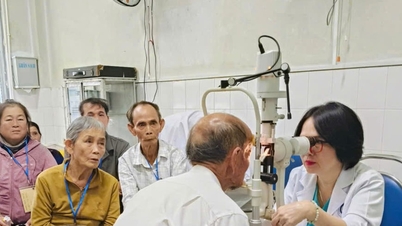















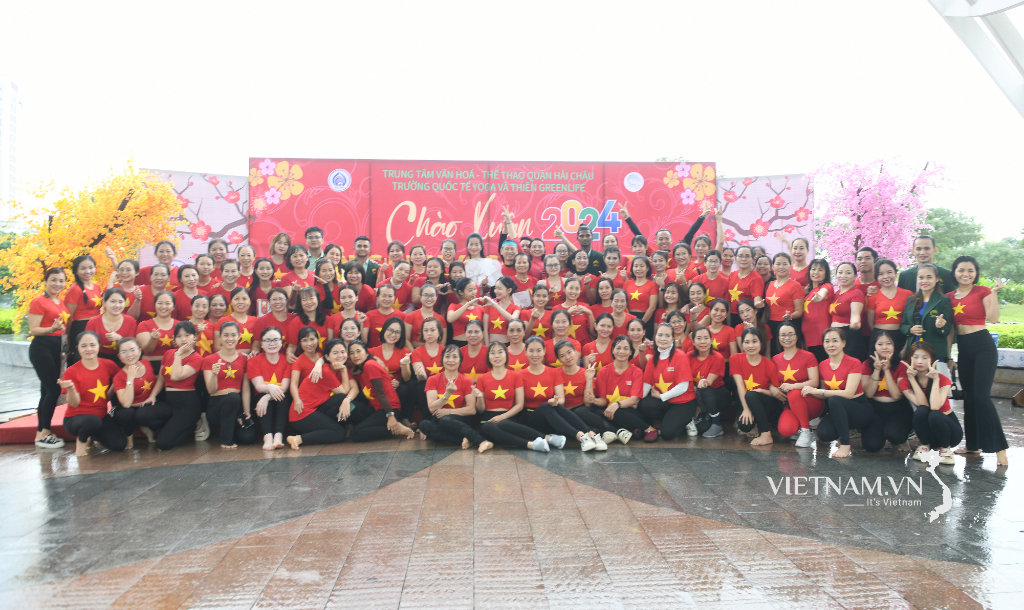

Comment (0)